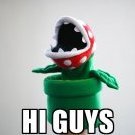Are you a scientist? Mathematician? What do you study and current research?
-
Similar Content
-
gaming What games are you currently looking forward to? 1 2 3 4 7
By Omega Centauri,
- 164 replies
- 10,048 views
-
- 103 replies
- 6,504 views
-
- 31 replies
- 866 views
-
- 14 replies
- 708 views
-
- 34 replies
- 1,188 views
-
-
Recently Browsing 0 members
- No registered users viewing this page.



.thumb.png.83e037ba7e453fda3377d3d6caa2743d.png)


Recommended Posts
Create an account or sign in to comment
You need to be a member in order to leave a comment
Create an account
Sign up for a new account in our community. It's easy!
Join the herd!Sign in
Already have an account? Sign in here.
Sign In Now